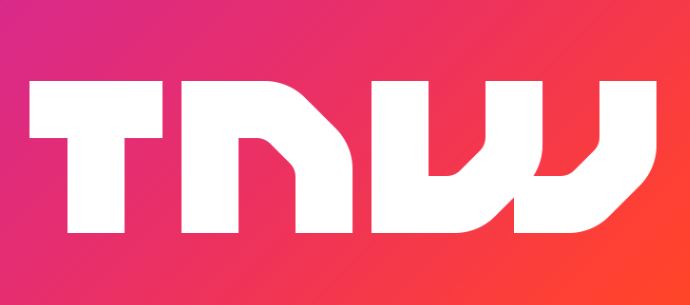You’ve taken care of your technical SEO audit, your links have been cleaned because your former SEO (agency) might have done some dirty link building in the past. Your keyword research is more than on point already and you know that kind of seasonality there is for your industry/nice. Sounds like some good SEO progress don’t you think? Well, but what if you want to rank for the most competitive news keywords in the world? That’s won’t even come close to make sure you can rank for them. Because who doesn’t want to rank for big company names like Google, Facebook, Pokemon, etc.
The Next Web is one of the biggest technology publications in the world reporting around everything remarkable that has to do with the tech industry. So when we write content we always need to think from a marketing + editorial perspective what we will be covering in order to reach the right people.
Thinking about SEO in that aspect is very important to us, it’s over 45% of our traffic and of course, it’s a traffic stream that we’d like to keep on growing in the future. As news publishing is very competitive, we need to make sure that all areas of SEO are covered to be able to rank for competitive keywords so we can outrank competitors/others.
What did we do?
Ever looked from an SEO perspective at keywords like: Pokemon, Facebook news, etc. They’re keywords with millions of searches on a monthly basis. Well, I could tell you it’s a horror to rank for ;-), don’t you think?. They’re probably one of the most competitive keywords worldwide.
You’re competing with top news publishers and many other highly relevant sites for a ranking in the top 10-50. Usually, page #2 is a waste of time for most SEOs but on these keywords, I can assure you that traffic is still very much worthwhile. Ranking worldwide for most of these keywords is undoable, so you have to take your chances and hope that you can rank for them in certain countries or around certain news events.
How we pick these keywords? Don’t worry, we’re not looking through tens of thousands of keywords every week to decide what we’re going to focus on this week. With millions of users, it can become easier to find out what keywords we’re doing good for and which ones we don’t through Google Search Console for example.
So let me give you some insights into how we are doing this for a very new and trending keyword: Pokemon.
- Week 1: Pokemon has been released, we wrote a couple of articles around the topic. We start to see some nice traffic from Google.
- Week 2-3: After some more articles we’re seeing that this new application is becoming something really worthwhile to cover. It’s an application that is probably here to stay for the upcoming months and might have an impact on our search traffic. Based out of the topics that we see rise up in Google Analytics.
- Week 4: Every week new information or news is coming out around Pokemon. Google AMP has been very well established for The Next Web so far and we’re ranking for the top 15 countries for a day on a Pokemon-related news article, result: 250k+ users in a day.
- Week 5: Our teams are in the background working hard on creating more relevant pages towards Pokemon that will have a long-lasting (evergreen) impact on our SEO traffic.
With this strategy, we’re taking advantage of the authority that we already have on TNW, tens of thousands of links that contribute to our authority. But taking care of new technologies, just like AMP will make sure that we can take advantage over other publishers and the competition on mostly mobile results to take over the results and rank high.
There already has been written a lot of around AMP recently, some good posts and some bad ones but for The Next Web AMP is really paying off as usually, we wouldn’t rank for highly competitive keywords. As the AMP block is only shown, as far as we can see/monitor, for news related keywords with a lot of volume this is something we now benefit from as we do rank for these keywords.
What kind of results can you expect?
You never know! It really depends, someday you might be able to rank for a couple of hours in Google Indonesia for these keywords and that will bring you all the traffic you might be looking for and the other months you might be waiting for some traffic to appear in your Google Analytics or the web analytics tool of your choice. But most of all we see that we benefit most from early adopting new technologies. The AMP project that is something that is doing really well for us, but on the opposite side is Google News something that we’re performing in terribly (hello Google if you’re reading this, contact us ;)).
What can you do to make this happen?
Be on top of everything, all the time, related to SEO. AMP is released, make sure you’re on the beta list and the first one out there to support it. Schema.org is supporting Breadcrumbs finally, make sure it was already in there before the news was released. Your site speed is 1 point better than your competition. Make sure it gets up to 10 points.
We strongly believe that the smallest things at some point can make the difference. Definitely as a smaller site. In our case we would still lose it from the New York Times while we have 300k+ referring domains to our site that will make sure we get some link juice. But you can’t compete on that level of authority with companies like NYT.
So on other areas, you would have to make up for it, which probably can be some of the areas that I’ve mentioned before. As NYT will probably be less flexible, being it a big company with a long roadmap to support areas like this, if you’re lucky.
Look at your industry or your toughest keywords. How are you ranking? You’re probably not number 1 yet on every keyword. What is your competition doing better than you? Site speed, better content, more links, higher authority, AMP integration, better anchor texts, more internal links?
Start creating a checklist for yourself what you need to compete on every time so you know what areas you can still improve on compared to your competition. In the long run, this will improve all your areas and provide you with a ranking increase.
Martijn Scheijbeler is the director of marketing at The Next Web, he’s responsible for the execution of its marketing strategy involving audience growth & engagement, marketing analytics, product and data across all projects related to The Next Web: Deals, Academy, Index.co & Conference.
The Next Web: TNW is a future-proof tech media company that focuses on this cross-generational group and helps them get the most out of technology by informing them through remarkable stories and insights, and by bringing them together through extraordinary events and workspaces.
You can find Martijn on Twitter and LinkedIn.
Make sure to check out TNW’s Twitter and Facebook pages.




